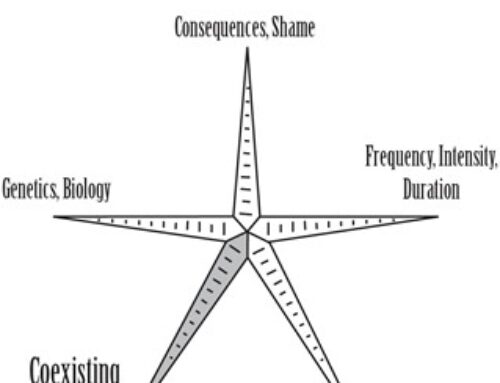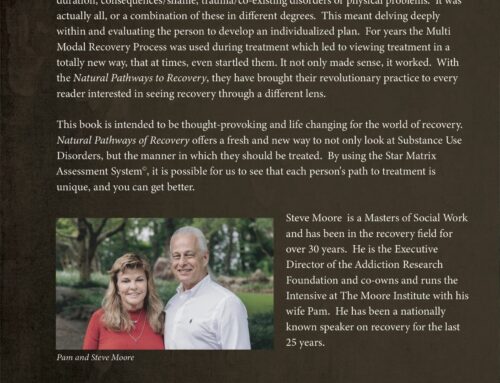The Holidays and Boundaries Part II: Little or No Contact
By Clay Hightower, LMSW
Halloween may be behind us now, but some of us are still thinking about ghosting this holiday season.
“Ghosting” is slang for cutting somebody out of your life without any sort of contact or explanation. This term gained popularity with the boom of the dating app industry, and it mostly happens early in the dating or “getting to know” process with people. For most, it just requires not answering their text messages and phone calls and unfollowing them on social media. Even though ghosting is a relatively new term, it is not a new phenomenon. As harsh as this sounds, and it is both uncomfortable to do and have done to you, it is just an example of a very firm boundary. I am not advocating that you only practice setting firm boundaries by ghosting. Nor am I suggesting that it will be the most viable option for setting boundaries with family this holiday season. For many, family relationships are too emotionally, logistically, or financially connected to completely sever the relationship without preparation. Also, the need for this firm of a boundary may be situationally dependent, in that I do not wish to attend a large in-person gathering this year due to COVID concerns, but I am willing to attend large in-person gatherings again in the future once I feel safer. It is my responsibility to determine how long I need to maintain this boundary and if it is safe for me to voice that this boundary is now in place.
I do understand that some individuals feel the need to maintain boundaries that firm to ensure their physical and emotional safety, and I do not believe that family is protected from boundaries that firm just because they are family. I am the only one who decides if my boundaries are valid and necessary, and I am the only one that can decide if I wish to voice this boundary to the other person. If our relationship has been, or still is, so harmful that I cannot be around you without feeling physically or emotionally unsafe, I am allowed to create that safety for myself. That is not something that is up for debate.
With all of this being said, I do intend to use ghosting as an example to present some ideas for maintaining boundaries of little to no contact and to discuss self-care options that may be helpful in that process. One of the more attractive aspects of setting a boundary by ghosting is the complete lack of interaction that ensues. There is no closure conversation or opportunity for the other person to get answers about what past or present behaviors might have created this lack of contact. This helps alleviate feelings of FROGS (fear, responsibility, obligation, guilt, and shame) that one is more likely to experience if there is a conversation around a boundary. It will not prevent these feelings entirely, and this type of boundary setting also will not necessarily prevent the other person from attempting to make contact still. However, it can make it easier to ensure I maintain my boundary by increasing my sense of physical and emotional safety.
As I stated above, maintaining this boundary alleviates my need to respond, but it does not prevent the other person from attempting to make contact. Also, I may decide that I do feel safe enough in the relationship to voice the presence of this boundary. This is a choice that I have to make based on the nature of the relationship and my current emotional state. If this is the kind of boundary you are thinking about setting with family this holiday season, here are some examples of responses one might expect to hear that would lead to FROGS:
“Don’t make this all about you. Don’t you know what this is going to do to (insert family member here)?”
“Are you really going to do this to your family?”
“Doesn’t that seem a bit extreme?”
“You’re being irrational. It’s really not that big of a deal.”
“That happened so long ago. You need to get over it.”
If I know that the person that I am maintaining this boundary with is particularly influential, coercive, or even controlling, it may not be in my best interest to voice the boundary. This would be most common in dysfunctional family systems with histories of abuse, trauma, or unhealthy power dynamics. If that is the case, it might be the safest option to not voice the boundary but acknowledge that is my choice. If I do feel safe enough to voice that this boundary is in place, it is best for me to prepare for what may happen. Here are some tips for creating a self-care plan around setting and maintaining firm boundaries this holiday season:
- If contact is going to be made, have preplanned responses. If I am worried about being coerced or spoken to harshly, but still wish to voice my boundary, it is best to provide as little information or rationalization as possible. A version of “I am not going to be attending the gathering this year” is more than enough information, and I can do that over text-based communication to minimize contact. If I do expect some form of the responses listed above, it might also be helpful to have a response planned to reaffirm that the boundary is going to be maintained (if I don’t want to ghost). That response can be as simple as “I do not wish to discuss this any further.”
- Create plans that will minimize the impact that the boundary has on my own holiday experience. Just because I don’t want to spend the holiday season with family doesn’t mean I want to be alone and feel bad the whole time. This may look like finding a more supportive and encouraging group of family or friends to make plans with, even if that is over Zoom, or creating my own new traditions or rituals for the holidays. If I do plan on using tip #1, muting the conversation or placing my phone on Do Not Disturb can help limit the reminders of the situation.
- Pay attention to emotional flooding and avoid rumination. It is only natural that I will feel some feelings of fear or anger while setting and maintaining a boundary. As I stated in my last post, boundaries come from a desire to protect myself physically and emotionally, and it does not mean that I am doing something wrong. Common physical sensations associated with this are tightness in my chest, clenching of shoulder and jaw muscles, and any difficulty breathing. If I notice myself experiencing any of those sensations, I try to notice where my mind has wandered to create this reaction. Thinking about the other person’s response or what they think of me are common. In that situation, I want to be more intentional about doing something to ease that. Any activity like meditation, exercise, or yoga that can help reconnect my mind with my bodily experience. More intellectually stimulating activities like reading, watching television, or listening to music or a podcast can help distract me from those thoughts for long enough to allow the sensation to subside. As long as I am not continuing to think about the situation while I do one of these activities, it will eventually pass.
I hope that this will be an informative and reassuring read for those unsure if it is okay to set and maintain firm boundaries with loved ones this holiday season. If you feel more capable of being vulnerable in those relationships but still wish to maintain some kind of boundary, stay tuned for my coming posts!





